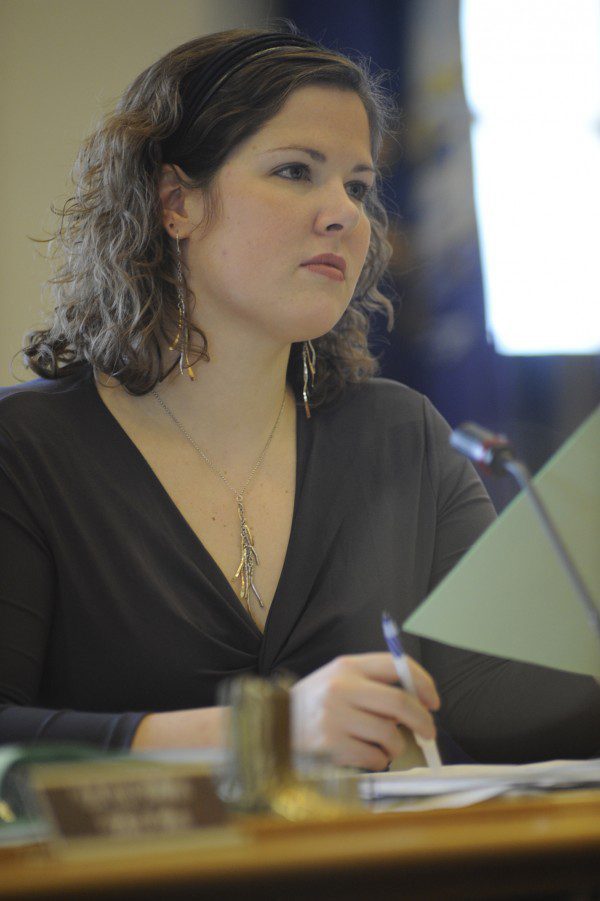When you get an “F,” there are usually two ways to respond: Blame the teacher or try to do better the next time.
Maine leaders are taking the second route – vowing to do something about the failing grade the state got last month in a 50-state study of the laws and practices that could prevent corruption.
Both the Republican governor and the Democratic leader of the House, among others, said the state needs to take steps to improve laws requiring transparency and accountability in the executive, legislative and judicial branches.
Gov. Paul LePage said he has already introduced a bill that “seeks to improve the current disclosure requirements of Legislators and certain executive employees. This is the direction we need to move in to improve Maine’s grade. It’s clear that many states struggle with this issue. However, it is an issue that I will continue to work on improving on behalf of the Maine taxpayer.”
State Rep. Emily Cain said it may make “sense to have some kind of a bipartisan task force that would be able to look at this between now and November that would mostly focus on feedback from the public and experts.”

Maine ranked 46th in the “State Integrity Investigation” by three nonpartisan, national and international journalism and good government groups.
The score was based on research into 330 indicators in 14 categories, from procurement to campaign disclosure to lobbying.
No state got an A, leading the groups to conclude, “statehouses remain ripe for self dealing and corruption,” according to an earlier report by the Maine Center for Public Interest Reporting.
Maine got an F in nine of the 14 categories, including executive accountability, public access to information, civil service management, pension fund management, the insurance commission, legislative accountability, lobbying disclosure, ethics enforcement and redistricting.
The state got a D+ in judicial accountability and political financing and a C- in the budget process and procurement. It got one A: in internal auditing.
Peter Pitegoff, is dean of the University of Maine Law School and was also a member of the legislature’s 2006 ethics advisory committee.
“Maine’s weak assessment in the national state integrity study is not an indication of corruption in state government, but it can serve as a catalyst for constructive change in the regulatory regime for government officials and institutions,” Pitegoff said. “We would do well to undertake a closer examination of what is on the books and what ought to be, and to be explicit about assuring public integrity.”
Shenna Bellows, executive director of the American Civil Liberties Union of Maine, said the report “demonstrates the need for comprehensive reforms to our accountability and transparency laws. The legislature and the governor are currently trying to have it both ways, by reforming some aspects of the system, but taking a serious step backward in other areas.
“For example,” she said, “the governor is seeking a vague exemption from Maine’s right-to-know laws to further hide from public view the work of his office, this is exactly the wrong direction given the recent national report.”
She said her group identifies projects it will work on with other organizations over the summer and expects the transparency problems highlighted on the study to be “a number one priority.”
Barbara McDade, president of Maine’s League of Woman Voters, said, “the League would really like to study these things and see the best way to go.”
Was McDade surprised at Maine’s bad grade? “Yes, I think I was,” she said. “I still have faith in our government. I know people in other states that don‘t have faith in their government anymore … I think there probably have been problems that we don’t know about, but by and large, Maine works.”
She said one area the League believes may need changing is the way the state selects constitutional officers, such as treasurer and attorney general. Currently, they are elected by the legislature. She said that means the public has no role in their selection, nor do citizens have detailed information about the candidates for constitutional offices, another example of a lack of full transparency.
She also agreed with the study’s criticism that the state lacked a “revolving door” policy – one that would limit or even prohibit state officials going directly from their state jobs to an industry they regulated.
“It’s just unseemly,” McDade said.
Rep. Cain said she was prompted to look into the study by her father, who heard about it through news reports.
“He said, ‘You’re failing. What is this corruption that is going on in Maine?’ “
The report isn’t about corruption – it’s about laws that could prevent corruption. Cain said she and her father cleared that up and ever since, “It’s been a topic of daily conversation” between them.
She said a previous effort to reform ethics in Maine didn’t succeed, but she said this may be different because the new study is deeper, wider and more scientific in its approach.
Cain said, ‘This is an opportunity to have a different kind of conversation when you’re looking at consistent data across 50 states.”
Note: The Maine Center for Public Interest Reporting contributed the research about Maine to the national study.








